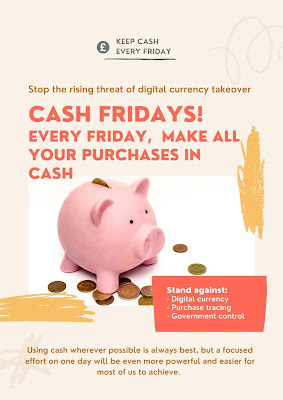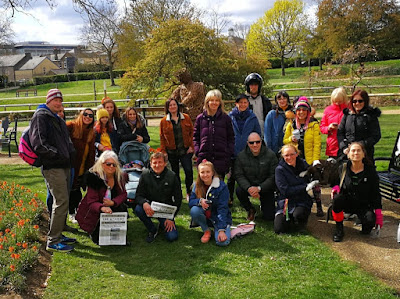Cash and Freedom
Cash is physical legal tender that can be used to exchange goods, debt, or services. Cash is simply an extension of the trade principal - a placeholder in between trades, to allow indirect exchange where people have differing needs. Using basic trade, I could provide a service to a farmer and obtain some food in return. The flaw is that the farmer may not need my service, meanwhile someone who does need my service may not produce food. Cash adds flexibility to the trade principle and allows more people to participate in it.
Moving the records of a person's cash earnings online does make a certain amount of sense in the modern age. However, if cash becomes obsolete, those numbers stop representing anything real and instead represent the "value" of each individual to the state. If digital currency becomes the norm, the solidity and security of cash is completely lost. Digital currency is vulnerable to hacking, it will make society more power-dependent, and it has absolutely no long-term stability.
Digital currency also opens the door to a social credit system. Social credit, much like communism, is one of those things that sounds great for the first few seconds you hear about it, but in practice is highly oppressive and dangerous. Social credit is the idea that a person's quality of life should be determined by their behaviour. This doesn't sound like a terrible idea on the surface - but once you start asking questions like "how is this monitored?" or "what do they mean by behaviour?" or "who makes the judgements?" it falls apart. The most obvious criticism to bring up is that the person in command of the operation would essentially be playing god, and anyone who had access to the system would have to be trusted beyond question, given the obscene amount of control that they would hold. In practice, such a system would also be highly intrusive, abusing private data such as shopping habits to determine the extent of your rights as a citizen.
Two details about China's social credit system that I found particularly disturbing are:
- In 2017, people who refused to carry out military service were barred from enrolling in higher education, applying for high school, or continuing their studies. This is highly problematic because denying education will eventually push all dissenters into a lower class without fair access to well-paid jobs.
- Sharing "fake news" is listed as an infraction, meaning that distributing any information that does not complement the official government line will be punished. This is an example of censorship.
Cash is sensible. Cash is reliable. Cash is private. Spend cash!
https://www.wired.co.uk/article/china-social-credit-system-explained



Comments
Post a Comment